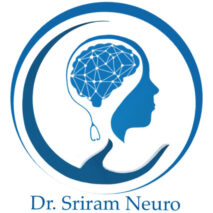
Up to 90% of all first strokes can be prevented by including healthy lifestyle choices and screening for modifiable risk factors in young & middle-aged adults
Hypertension: High blood pressure is a major risk factor for stroke, affecting both ischemic and hemorrhagic types. Regular blood pressure monitoring is essential to identify and manage hypertension, which is linked to a substantial increase in stroke risk.
Diabetes: Diabetes significantly increases the risk of stroke. Individuals with diabetes for over three years face a 74% higher risk of stroke compared to those without diabetes. Managing blood sugar levels effectively is crucial in mitigating this risk.
Atrial Fibrillation: This heart condition, characterized by irregular heartbeat, becomes more prevalent with age and is a significant stroke risk factor. Women, in particular, are at a higher risk of stroke due to atrial fibrillation.
Dyslipidemia: Elevated levels of cholesterol and other lipids in the blood contribute to cardiovascular diseases, including stroke. Regular screening and management of lipid levels are important for stroke prevention.
Smoking Tobacco: Tobacco use greatly increases stroke risk—active smokers are 2 to 4 times more likely to suffer a stroke, while those exposed to secondhand smoke face a 25% higher risk. Quitting smoking can significantly reduce stroke risk.
Sedentary Lifestyle: Lack of physical activity is a risk factor for stroke. Engaging in moderate to vigorous aerobic exercise for at least 30 minutes a day can help reduce this risk.
Kidney Disease: Chronic kidney disease, particularly in patients undergoing dialysis, dramatically raises stroke risk—studies indicate a 5 to 30 times higher risk in these patients. Managing kidney health is important for stroke prevention.
Sleep Apnea: Common among stroke patients, sleep apnea is often undiagnosed, with a higher prevalence in men. Proper diagnosis and treatment of sleep apnea are crucial for reducing stroke risk.
Alcohol Intake: Excessive alcohol consumption increases stroke risk. Heavy drinkers have a 28% higher risk of stroke compared to non-drinkers. Moderation is key to reducing this risk.
Diet: A diet high in fruits and vegetables is associated with a lower risk of stroke. Emphasizing these foods can be a beneficial part of a stroke prevention strategy.
